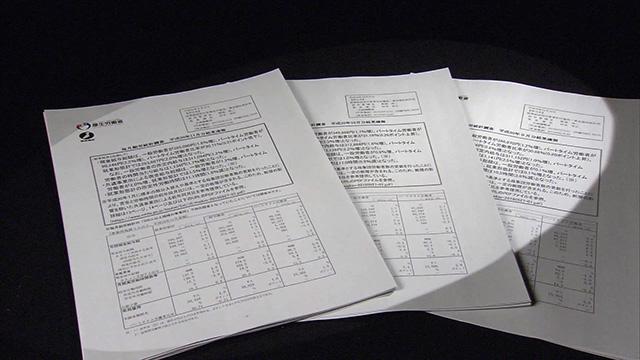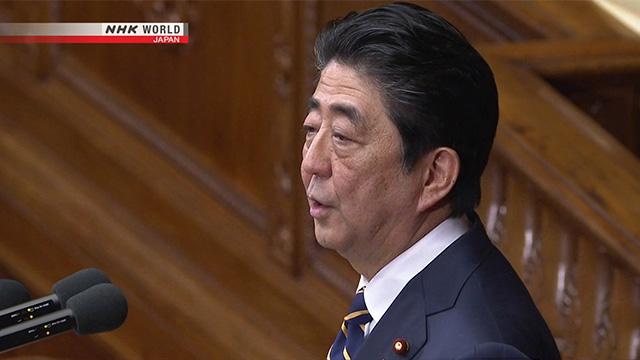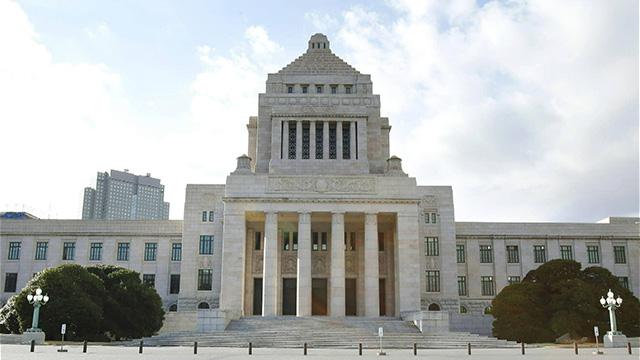Background
- The ordinary session began on January 28th and will last 150 days until June 26th. If there is no extension, the Upper House election is expected to be held on July 21st. A series of local elections are scheduled on April 7th and 21st.
- Emperor Akihito will abdicate on April 30th and Crown Prince Naruhito will ascend the throne on May 1st.
- Japan will host the G20 summit on June 28th and 29th.
- Japan’s government plans to raise the consumption tax rate from 8 percent to 10 percent in October.
Issues
1. Controversial data problem
Normally, an ordinary session of the Diet starts with a discussion about the budget bill of the new fiscal year. It may be different this year, however, because a big scandal recently surfaced. Millions of recipients of unemployment benefits and work-related accident insurance payouts may have been underpaid for years.
The Labor Ministry conducts a monthly survey on wages, work hours and other labor conditions to calculate economic indicators and for many other purposes. They are one of the nation’s key statistics and are reported to various international organizations.
The ministry officials were supposed to survey all major businesses in the country. But in Tokyo, they had only covered some. This sampling malpractice started in 2004.
They project that 20 million workers received a total of 53 billion yen, or US$483 million, less than they were entitled to.

This has led to criticism from both the ruling and opposition parties. But while the former seeks to clarify facts and issue additional payments as soon as possible so as not to affect discussions on the budget, the latter is demanding an intensive debate on administrative trust. Some opposition lawmakers say that they cannot discuss the budget bills unless the related documents are submitted to the Diet.
This is expected to be one of the main focal points in this session.
2. Consumption tax hike
Another big issue is the consumption tax hike scheduled in October. The government plans to raise the rate from 8 percent to 10 percent.
However, some experts are concerned about the timing of the hike because of uncertainties regarding the future of Japan's economy. For example, there are worries the US-China trade dispute may affect it.
In addition, opposition parties have criticized the complexity of the new tax plan's exemptions, such as the decision to introduce different rates for food eaten in restaurants and food that is taken out.

Prime Minister Shinzo Abe stressed the necessity of the tax hike to cope with the country’s aging society and social security in his policy speech at the first plenary sessions of both houses on Monday. If he implements it as scheduled, he must prevent the nation's economy from shrinking.
3. Japan-US trade negotiations
Last September, Abe and US President Donald Trump agreed to start discussions on the bilateral Trade Agreement on Goods, or TAG. Working-level talks will begin soon.
Japan’s government wants to reach an agreement to maintain tariffs at the same rate as the Trans-Pacific Partnership Agreement, or TPP, especially in terms of agricultural, forest and fishery products. It is hoping to achieve progress in negotiations before the G20 summit in June in Osaka.
However, some lawmakers expect the US to take a hardline stance to reduce the trade deficit. In fact, US Treasury Secretary Steven Mnuchin said last October that Washington wants to include a provision to deter currency manipulation in future trade deals, including by Japan.
4. Measures for free preschools
The government wants children aged three to five to get free education when the consumption tax is raised this year. In addition, authorities want higher education such as university to be free for students from low-income households from April 2020. Related bills will be submitted this session.
Opposition lawmakers have criticized the measures. They point out that there are many children on nursery school waiting lists across Japan, especially in urban areas. Some say the lack of nursery schools prevents women from returning to work smoothly after giving birth. They say the government must deal with this problem first before making preschools free, as there are budget limitations.
5. Second supplementary budget for fiscal 2018 and budget bill for fiscal 2019
The government and ruling bloc want to pass a second extra budget for fiscal 2018 and a budget bill for fiscal 2019 by the end of March.
The supplementary budget is about 3 trillion yen, or US$27 billion. More than half of that is to boost infrastructure for disaster prevention and make school buildings earthquake-proof following several disasters last year. It also includes over 3 hundred billion yen, or US$2.7 billion dollars, to strengthen Japan’s agriculture, forestry and fishery industries for the TPP free trade agreement that took effect at the end of last month.
The budget bill for fiscal 2019 is set to rise to a record of over 101 trillion yen, or about US$910 billion. Much of the increase will be allocated to social security spending as Japan’s society ages. Spending on the sector will be the highest ever, at more than US$300 billion. Defense spending will also hit a new record of about US$47 billion. This includes the cost for introducing the Aegis Ashore missile defense system. US$18 billion is set to be earmarked to help mitigate any negative effects stemming from the consumption tax hike planned for October.
The government and ruling bloc will try to pass them as early as possible, and opposition parties will try to block or revise them.

There are other issues which may be debated. As for diplomacy, there is the second US-North Korea summit, the peace treaty negotiation between Japan and Russia, and bilateral issues involving Japan and South Korea including wartime labor.
Domestically, opposition parties will continue to pursue a series of cronyism scandals implicating the administration of Abe.
Abe could become the longest-serving prime minister in November this year. But there are several challenges for him to overcome before that.
